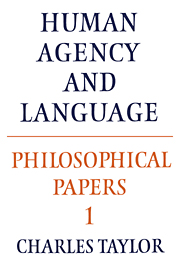5 - Peaceful coexistence in psychology
Published online by Cambridge University Press: 05 June 2012
Summary
Psychology is a vast and ramified discipline. It contains many mansions. But this does not prevent it from being intellectually divided against itself. I would like to discuss in particular one major division in psychology, and in so doing suggest a way of reconciling the two sides. Out of such reconciliation, there might come a new perspective on the discipline.
The deep division in the discipline which I would like to examine concerns basic notions about science and the methods of science. At bottom it is a difference of epistemology. The epistemology which is dominant among experimental psychologists in America is the one which emerged with the scientific revolution in the seventeenth century. There are many ways of characterizing this view of science, but for the purposes of this discussion we can single out two features, because they are the principal sticking points in any confrontation between the two epistemologies.
The first is the principle that science must be grounded in data that are intersubjectively univocal. This point is often put by saying that experiments must be replicable by anyone, and any results must be such that others can check them. Science achieves its impressive show of objectivity through intersubjective agreement. Now this puts a restriction on what can be counted as data of a science. There are many ranges of judgements we make in ordinary life which cannot come close to meeting this requirement of intersubjective univocity.
- Type
- Chapter
- Information
- Philosophical Papers , pp. 117 - 138Publisher: Cambridge University PressPrint publication year: 1985
- 8
- Cited by



